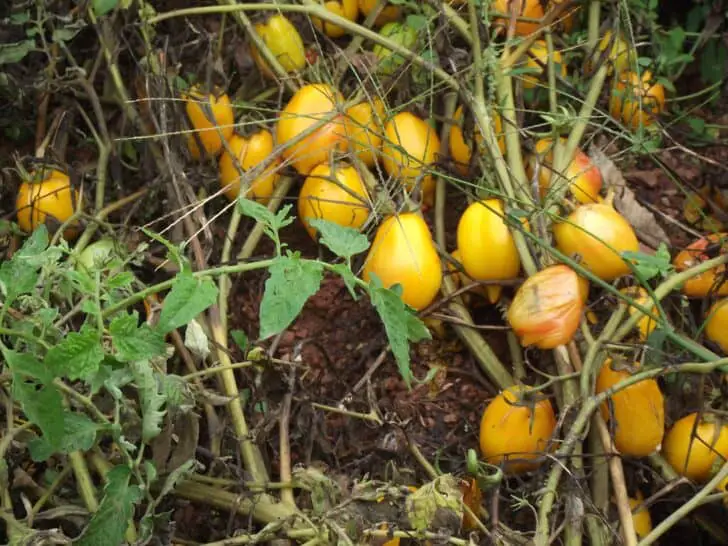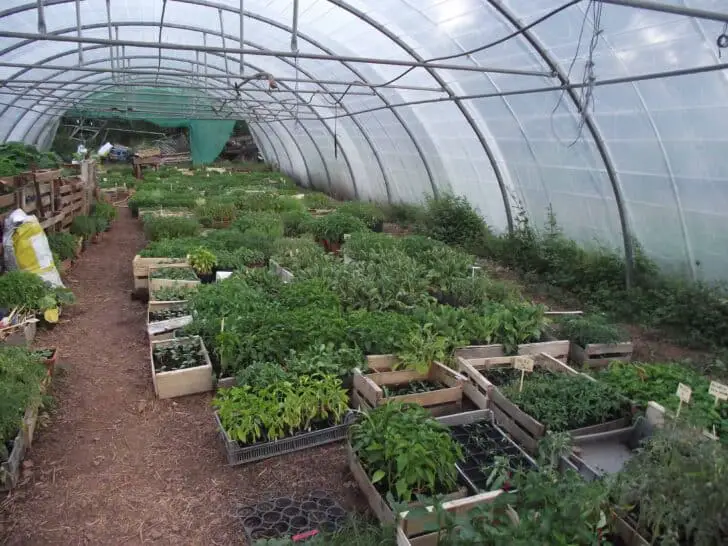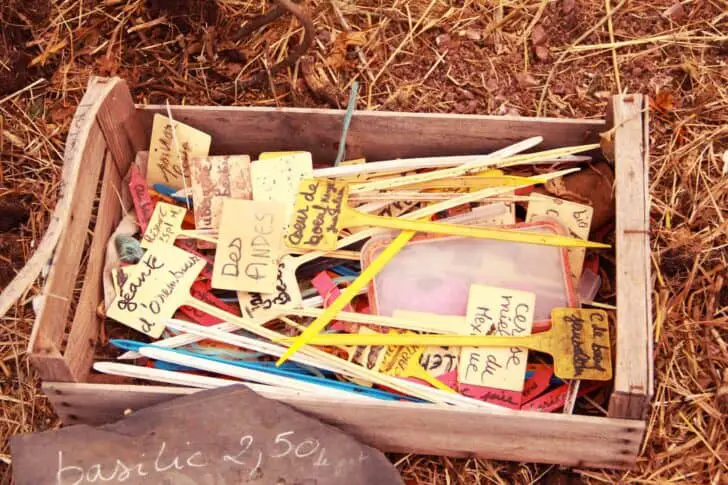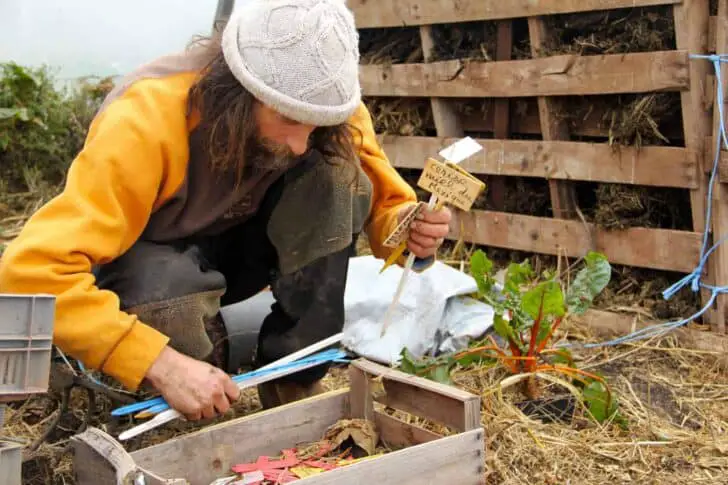
Pascal Poot is a French producer located near Lodève in the south od France. He has been an organic producer of seed grew products for 20 years. He has developed a method allowing him to farm 400 or so varieties of organic tomatoes without watering or using pesticides. He has over 3 hectares in the Hérault region where he farms his tomatoes and other old variety vegetables. The weather in the region is very dry and the terrain rocky, so his method of farming is extremely interesting with each plant producing up to 25kg of tomatoes.
What was the starting point for your approach?
In the late 80s, I realized something. So-called “weeds” were old vegetable species that were grown in the Middle Ages. We call them weeds because we can’t get rid of them. I wondered why they were so resistant. In the end I deduced that because other plants are coddled and treated, they don’t have any reason to develop natural resistance. So I thought, “I won’t look after the plants, only the soil to make sure it’s fertile. If the plants are sick, too bad, I’ll harvest the seeds and they should eventually become as resistant as the plants we call weeds.” That’s what I did and it worked.

Pascal Poot based his research on the fact that weeds grow so quickly, yet it is so hard to farm vegetables. “Everyone tries to farm vegetables by protecting them as much as possible, I, on the other hand, try to encourage them to defend themselves,” explains Mr. Poot. He creates seeds that resist drought and disease. This method allowed him to obtain higher yields than in traditional agriculture.
Your farm in the Languedoc-Roussillon suffers from near drought conditions…
It’s almost the Sahara here in Olmet (Cevennes)! We have three hills in the middle of a huge circle. The summer storms revolve around the circle. We sometimes see rain at 800 meters, but not here. Sometimes it doesn’t rain from late January to late October.
How long does it take for plants to adapt to this environment?
The first year, I planted tomato varieties that had never experienced drought. They only produced 2 or 3 cherry tomatoes. But less than 2% died. I collected all the seeds and replanted them. The next year I had 2 or 3 kg of normal tomatoes. After three years, I was getting 10 to 12 kg per plant. Now I grow more than 200 varieties of tomatoes.
Are standard fruit and vegetables that fragile?
A report on television talked about analyses that prove they contain up to 40 times fewer nutrients than 50 years ago! A laboratory has analyzed the difference in quality between my seed and other organic seeds sold. My seed resulted in up to 20 times more vitamins, antioxidants, and bisphenol (anticancer molecules).”For example, for vitamin C, there was between 30 and 38 mg per kg of tomatoes. But with my seed, it was 580 mg. That’s a big difference!
You organize courses that teach your approach. How do they work?
My training sessions give people the means and the basics to learn to think for themselves. I don’t provide ready-made instructions. What works in one place won’t necessarily work 500 meters away. Once you learn how to observe, you’ve got the resources to adapt to where you are.

“At first people thought I was crazy, but after a while, the neighbors saw that I had more tomatoes than them and never any mildew, so people began to talk and the researchers came to see me,” says Mr. Poot. He now works alongside agricultural researchers and presents his work in agricultural engineering schools.
A share of his seeds is sold illegally as they are not entered in the Official Catalogue of Varieties of Vegetable Species. Mr. Poot explains that the law forbids them from legalizing the seeds as “all of the seeds, or almost all of them, have been bought by multinationals who create phytosanitary products and fertilizers, they are interested in ensuring that the plants need these treatments in order to sell their products”. In order to achieve recognition for his vegetable producing techniques, he organizes workshops for individuals (gardeners or novices). Sébastian, who took part in a workshop says that he has “a better understanding of how plants work (…) By just watering when the plant is put in the ground, one can leave the plant on its own against a lack of water and disease. To do so one just needs to trust nature, that in 3 years of harvest the seeds will give birth to resistant plants, whose parents will have made a mark on their genetic coding in conjunction with their evolutionary context.” He says that “thanks to men like Pascal and his team, in a few years time we will be able to find tomatoes of all colors and shapes in organic markets”.

If you want to try the same approach of resistant seeds selection, here are Pascal’s advice:
- The latest you take the fruit, the better it is. Just before the first frosts as the fruit will have survived to summer drought and autumn rains as well.
- Tomatoes are special, seeds are in jelly, a little bit like eggwhite. This jelly prevents the seeds from sprouting inside the fruit, which is hot and humid. The seeds do not sprout before this jelly is rotten and fermented
- So you have to ferment the seeds. To do so, you have to open your tomatoes, extract the seeds, and let them several hours in their juice in a bowl. An actic fermentation will happen.
- You have to monitor the fermentation as it can last from 6 to 24 hours, but contrary to what is currently being said, you shall not wait for moisture to appear. Take a seed on your hand and if you can move it on your hand without the jelly coming, then it’s good.
- then you can use a tea colander, wash with water and dry the seeds. Using that material, you’ll obtain a germination rate between 98 and 100%.

I’ve been trying to convince my neighbors & my husband to stop watering their tomatoes after they start fruiting. They’re sweeter & better tasting. Too much water causes them to split, often before they are even very ripe at all.
Even the sensitive varieties of seeds/plants we buy in the shops these days are far more resistant to drought than folks think.
My neighbors (& husband) chastise & argue with me.
I shall stand firm. ;-)